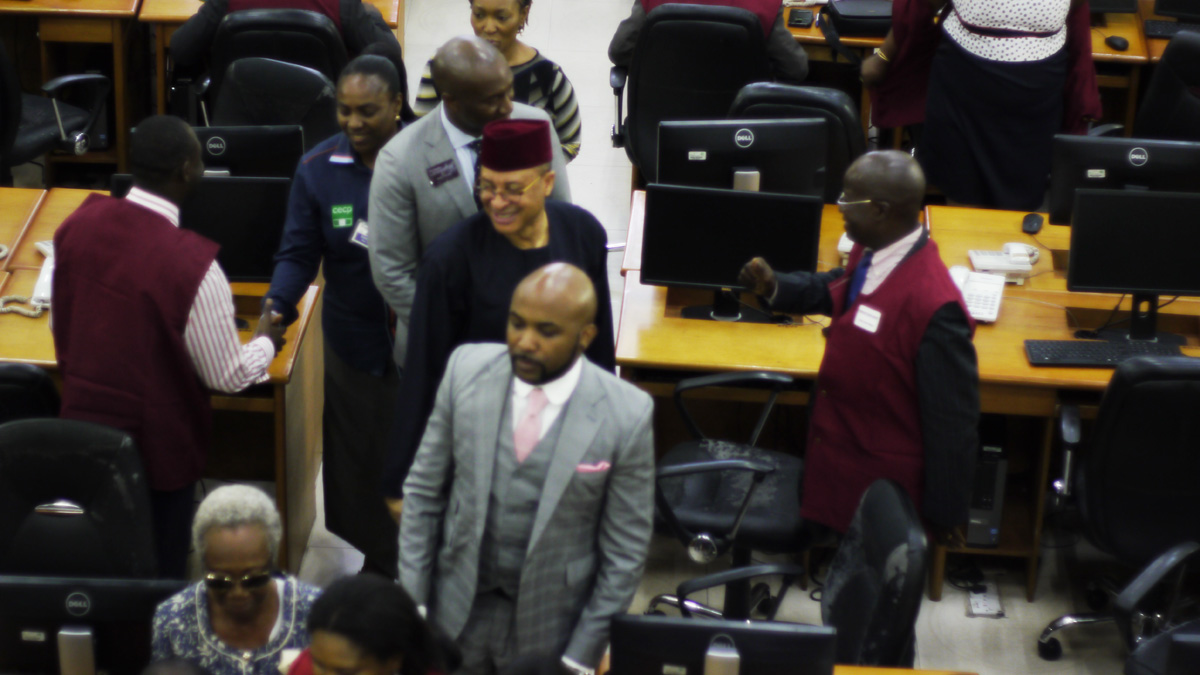- IPOs to Increase Activity on NSE — OBG
Nigeria is set for an increase in activity on its stock market, with the country’s first initial public offering in more than three years expected in the second half of 2018, the Oxford Business Group has said.
In mid-April, the Chief Executive Officer, MTN Group, Rob Shuter, said the company expected to finalise a partial float of its Nigerian unit on the Nigerian Stock Exchange by the end of the year.
It has been reported that MTN could sell off as much as 30 per cent of its Nigerian operations as part of the IPO, which was agreed to as part of legal action in 2015 that saw the company fined N330bn for failing to meet a deadline to disconnect unregistered subscribers from services.
With more than 65 million phone subscribers as of April – representing an estimated 41 per cent market share – and pre-tax earnings of R14bn ($1.1bn) last year, according to statements lodged in its home market of South Africa, the company is a major player in the Nigerian market.
Prospects for the float would appear positive, with MTN Ghana’s IPO, which opened at the end on May and will end on July 31, expected to raise some GHS3.5bn ($743m), according to press reports.
If carried through, the MTN Nigeria float would be the first IPO on the NSE since January 2015, and comes after the country exited a 21-month recession at the beginning of the year.
The interest generated by MTN’s listing on the NSE could also be followed by the prospect of further activity in the near team, as other companies look to deepen their capital holdings.
For example, on May 16, the NSE’s Executive Director, Regulation, Tinuade Awe, reportedly said the exchange was in talks with Skyway Aviation Handling and an unnamed financial technology firm on the possibility of them listing on the exchange.
This came after shareholders from a domestic company, Med-View Airline, approved the board’s plans for recapitalisation in April.
Med-View, which first listed on the NSE in January last year, will offer some 2.2 billion shares for subscription, with the capital generated to help the company expand into new domestic markets.
These moves should boost capitalisation on the bourse and attract both domestic and foreign investors. While strong, total capitalisation of the NSE has eased in recent times, sliding from an all-time high of N16.2trn ($44.8bn) on January 18 to just over N14.1trn ($39bn) by mid-June.
With more than $6bn in capital inflows entering the country in the first quarter of the year, a 600 per cent year-on-year increase in 2017, industry officials believe the improved economic climate could lead to an increased flow of IPOs onto the market.
“Improved corporate earnings are driving increased institutional investor interest in the equities market, and this should provide a supportive environment for IPOs and follow-on equity offerings,” the Chief Executive, Stanbic IBTC Capital, Funso Akere, told OBG.
“Supportive macro conditions, including declining inflation and interest rates, should lead to bond and commercial paper issuances, with companies looking to take advantage of low interest rates to raise both short- and long-term funding from Nigeria’s debt capital markets,” he added.
To further incentivise listings and public buy-ins in the future, the NSE and the Securities and Exchange Commission have been working with partners to streamline the IPO process.
A special committee has been established to look at the proposed full automation of the primary issuance process, allowing for the processing, approval, documentation, subscription and allotment of all issues – such as IPOs and public offers – to be carried out online.
If adopted, automation is expected to increase transparency in the issuance process, reduce processing time and boost investor confidence in the nation’s capital markets, which could translate into increased foreign investment.


 Naira4 weeks ago
Naira4 weeks ago
 Naira4 weeks ago
Naira4 weeks ago


 Naira4 weeks ago
Naira4 weeks ago




 Naira3 weeks ago
Naira3 weeks ago
 Commodities4 weeks ago
Commodities4 weeks ago


 News4 weeks ago
News4 weeks ago


 Banking Sector4 weeks ago
Banking Sector4 weeks ago
 Travel4 weeks ago
Travel4 weeks ago























